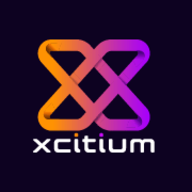

Cynet and Comodo Advanced Endpoint Protection are two competing products in the cybersecurity market. While Cynet offers a more user-friendly experience with straightforward pricing, Comodo Advanced Endpoint Protection is noted for its comprehensive features and security capabilities which users find worth the investment.
Features: Cynet offers automation, ease of use, and integrative capabilities. Comodo Advanced Endpoint Protection provides enhanced security layers, threat detection, and containment features.
Room for Improvement: Cynet could improve its reporting and analytics capabilities, software updates, and threat intelligence accuracy. Comodo Advanced Endpoint Protection users wish for a more intuitive setup, better resource management, and simplified customization options.
Ease of Deployment and Customer Service: Cynet users report a quick and hassle-free deployment with responsive customer support. Comodo Advanced Endpoint Protection, while offering robust features, tends to have a more complicated deployment process but also benefits from strong technical support.
Pricing and ROI: Cynet is generally seen as cost-effective with satisfactory returns on investment. Comodo Advanced Endpoint Protection, although higher in price, delivers significant value through its advanced features, making the cost worthwhile according to user feedback.
Customer support is generally satisfactory but could be improved, especially in terms of response time.
Their SOC side support, when a threat is detected, is excellent.
I was very satisfied with their technical support.
Their technical support can be improved in terms of speed when opening a ticket.
The solution is highly scalable.
Cynet is very scalable.
The stability of Comodo Advanced Endpoint Protection is rated at ninety-five to ninety-seven percent.
Comodo Advanced Endpoint Protection could improve by extending its auto containment feature to Mac and Linux systems since it currently only supports Windows.
There should be more options than deploying solely through group policy, as the assumption that GPO is working isn’t always the case.
Integration with local Active Directory, not only Azure AD, is a must.
Having a DLP feature would also add value.
Pricing is competitive and considered average compared to other solutions.
I think the pricing of Cynet is fair and one of the better options in the market.
It includes an auto containment feature, ensuring files and folders remain secure.
The SOAR function, deception, and forensics are very useful.
Cynet was valuable since it efficiently managed MDR without consuming a lot of resources.
The valuable aspects of Cynet are its EDR and XDR components, which are available at a reasonable price point.


Comodo Advanced Endpoint Protection (AEP) delivers patent-pending auto-containment, where unknown executables and other files that request runtime privileges are automatically run in a virtual contain that does not have access to the host system's resources or user data.
Cynet provides endpoint protection, threat detection, and response. It helps companies secure files, devices, and networks from zero-day threats, reducing the need for extensive support staff through its continuous monitoring, antivirus, and anti-malware functionalities.
Cynet offers comprehensive security features, including EDR, NGAV, and MDR, suitable for cloud, on-premises, and hybrid environments. Organizations benefit from its 24/7 SOC services, seamless integration with other cybersecurity systems, and intuitive graphical interface. Features like autonomous malware blocking, scalability, detailed network user behavior analysis, and rapid policy deployment ensure robust security operations.
What are Cynet's most valuable features?Cynet is implemented across industries like finance, healthcare, and retail due to its comprehensive cybersecurity capabilities. Organizations in these sectors benefit from detailed network user behavior analysis, data aggregation, automation, and incident response, ensuring robust protection for critical infrastructure and sensitive data.
We monitor all Endpoint Protection Platform (EPP) reviews to prevent fraudulent reviews and keep review quality high. We do not post reviews by company employees or direct competitors. We validate each review for authenticity via cross-reference with LinkedIn, and personal follow-up with the reviewer when necessary.